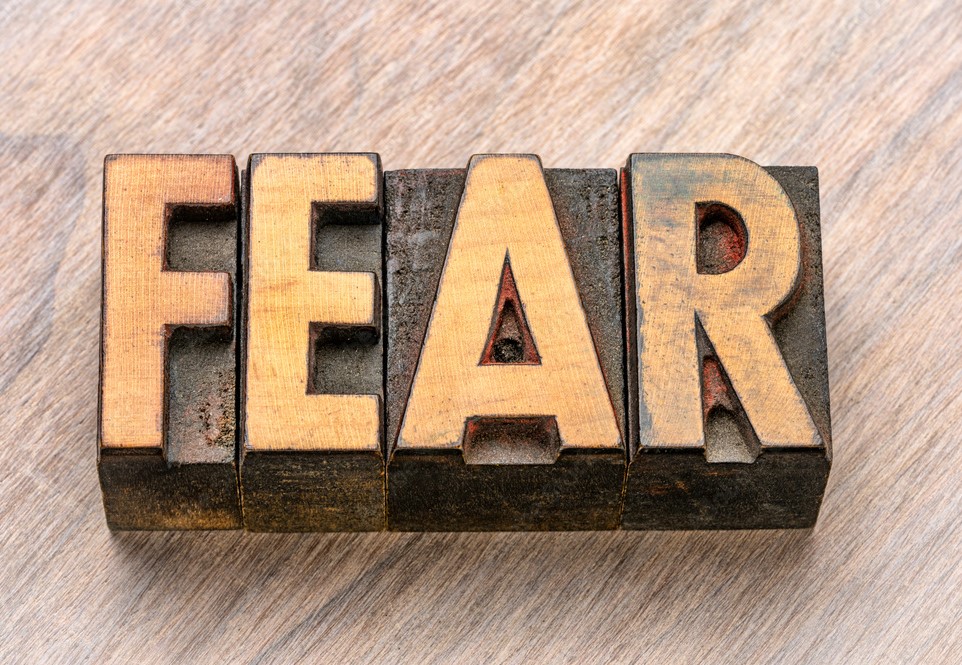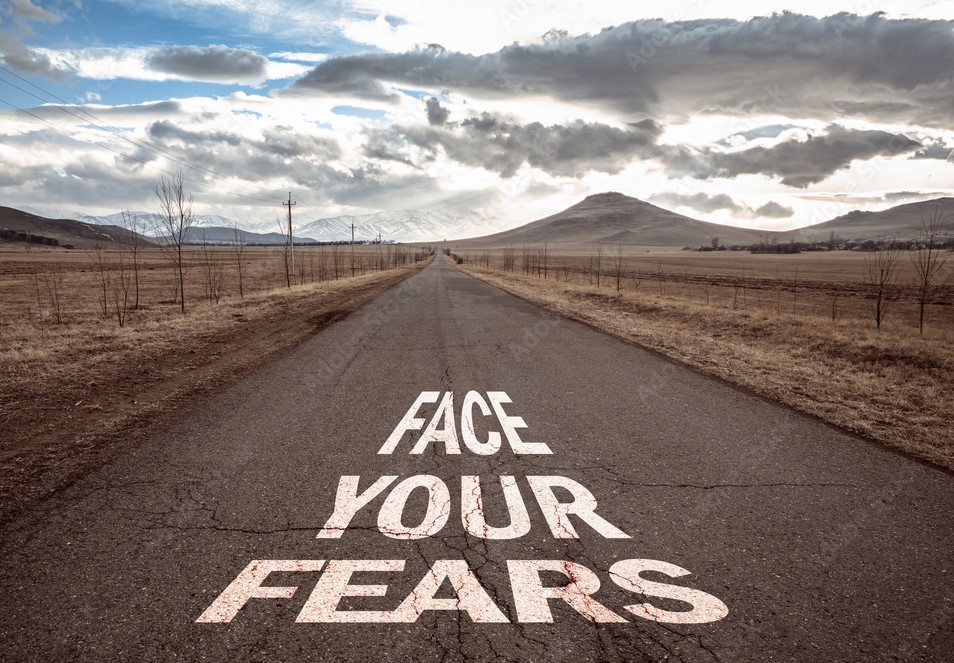Can Fear Make You Sick?
Understanding the Connection Between Fear and Health

We all experience fear.
It’s okay to have fear; after all, that’s how humans survived. Having a healthy dose of fear every now and then is good. Fear comes and goes… But what if it doesn’t go away? Or if it keeps coming back?
Then it can cost us our health. We become restless, more stressed, anxious, and before we know it, we’re dealing with a whole list of symptoms.
A few weeks ago, my mom’s friend unknowingly gave me this insight.
Just over a year ago, she received the news that she had breast cancer and went through treatment, dealing with the symptoms that came with it. After a year of treatment, she received the result: healthy — cancer is gone, and the treatment was successful. Like many people, she and her family were relieved and happy, and she could finally start living her life again.
When we had a get-together and were enjoying time with everyone, the topic of healthcare came up. My friend’s mom told us the story about her husband, who had gone in because the doctor suspected bowel cancer. Fortunately, this was a misdiagnosis, and we expressed our concern, relief, and happiness. As the room filled up with other stories, my mom’s friend said, “I was prescribed sleeping pills, and they work so well! They help me sleep so soundly. I can’t go without them; if I do, I only think about cancer. Is it gone? Will it come back? Will my husband get it?”
As I listened to her words, I realized this is a lot of fear to carry around. Sadly, I don’t have the answers or the cure for cancer or how to prevent it, but I do have techniques to help deal with fear and prevent it from escalating, which can lower the risk of getting sick or illnesses returning. Imagine going through treatment yourself, then dealing with the stress of worrying that maybe your husband has it. It’s great that the medical field provides pills to help us sleep, and in her case, they allow her to finally get restful sleep, but the truth is the underlying issue is still there. The real issue preventing her from sleeping is fear.
I’ll share more details below about fear, what it does to our bodies, and what to do instead. I’ll give you four tips on what you can do when you’re feeling fear. If you want more help to overcome your fear, contact me here.
Why Do We Have Fear?
As I mentioned earlier, fear has played a crucial role in our survival for millennia. In our tribal past, fear kept us alert to the dangers lurking around us. It was essential for avoiding threats, whether from wild animals or rival tribes. Fear helped ensure our survival, and it became ingrained in our DNA.
When we’re on a high building, we want fear to kick in to protect us from standing on the edge, because if something happens, we could fall. That’s healthy fear. Fear comes up and goes away. This is also how our bodies and cells are designed to cope. Our cells have a brilliant system for handling acute fear and stress. But what if your stress levels don’t go down? What happens to your cells then? Is it possible that fear can kill?
Almost every major illness that people acquire has been linked to chronic stress. Between 75% and 90% of primary-care physician visits have stress as a major contributing factor. – Bruce H. Lipton, Ph.D., Cell Biology
What Happens Inside the Cells?
Our body cells function best in a community, where every single cell works together with other cells harmoniously. They send and receive messages, nutrients, and help other cells. When we experience fear, it’s like a national alarm going off, and every cell shuts its borders from the rest. The cell is in protection mode. After the threat passes and the cells get the all-clear sign, they open up and return to their jobs, resuming their connection with other cells to enhance growth.
But what if the threat doesn’t pass, and there’s no all-clear sign to open up? The cells will stay in their protective posture. How long can they maintain this state? Eventually, the community collapses due to dwindling resources, nutrients, and messages. One by one, even the strongest cells die because chronic stress is debilitating. A community can survive short-term stress, but when stress goes on and on, it results in the termination of growth and the breakdown of the community.
So, fear shuts down cells and growth. When this happens, our immune system is suppressed. Inflammation increases, heightening the risk for asthma and other autoimmune diseases, and encouraging the onset of cardiovascular disease, cancer, and type 2 diabetes.
What Is the Opposite of Fear?
Remember my friend’s mother? Let’s take a closer look at that. Using medication to sleep helps her a great deal to fall asleep, and we absolutely need sleep, especially when we’re in a heightened state of fear. However, even the use of sleeping pills doesn’t make her fear go away. The fear still lingers underneath the true issue. Her cells are still in lockdown. When cells are in a protection state, we become more prone to diseases and illnesses.
I hear you thinking, ‘What is the key to minimizing fear?
It’s love. When cells can work together, the community is in a state of health and growth, while the cells interact constructively toward a common goal.
How do we get to that state, from fear to love? First, read the four tips.

Four Tips to Help When You’re Feeling Fear
Consider the following questions:
Examine How Your Fears and Protection Behaviors Impact Your Life:
• What fears are effecting your growth?
• Where did these fears come from?
• Are they necessary?
• Are they real?
• Are they contributing to a fulfilling life?
1. Mindfulness and Meditation:
• Mindfulness involves staying present and observing your thoughts and feelings without judgment. It’s been proven to lower stress levels and can help break the cycle of fear by allowing you to become more aware of how fear is affecting your body and mind.
• Simple Mindfulness Exercise: “Take a few minutes each day to close your eyes and focus on your breath. If your mind starts to wander to fearful thoughts, gently bring it back to the sensation of your breath.”
2. The Role of Diet and Sleep:
Fear and stress can take a toll on both your mind and body, and sometimes the foods we eat or lack of sleep can worsen these feelings.
• What we eat and how well we sleep also impact how we process fear. Consuming balanced meals with adequate nutrients can help your body manage stress, and good quality sleep helps restore and reset your body’s natural defenses. If you’re struggling with fear, consider adjusting your diet to include more calming foods like leafy greens, nuts, and herbal teas, and prioritize getting 7-9 hours of sleep each night.
3. The Power of Visualization:
The Words You Say and the Pictures You Imagine Influence How You Feel
When it comes to overcoming fears, one of the fascinating secrets of the mind is that how you feel is directly connected to the pictures you imagine in your head and the words you say. The images you create and the words you speak shape how you feel about something. Change your words and create a different reality.
This is a great technique for those trying to overcome fear.
• Visualization is a powerful tool in transforming fear. By picturing yourself in a calm, safe space, or visualizing yourself handling a fearful situation with confidence, you can rewire your brain to react more calmly. Try imagining a peaceful scene, like a beach or a forest, and allow yourself to feel grounded and at ease as you visualize it.
4. Practical Exercises or Activities:
Here’s a quick exercise to try when fear starts creeping in:
- Deep Breathing Exercises
Focus on slow, deep breaths. Inhale deeply through your nose for a count of four, hold for four, and exhale through your mouth for a count of six. Deep breathing helps activate the parasympathetic nervous system, which promotes relaxation and reduces stress. - Ground yourself. Stand up and feel your feet firmly planted on the ground. This helps you reconnect with the present moment.
- Challenge your fear. Ask yourself, “Is this fear based on reality? What is the worst that could happen, and how likely is it?”
- Physical Activity
Moving your body, whether it’s a short walk, stretching, or doing some light exercise, can release built-up tension. Exercise increases endorphins, the body’s natural stress relievers, and can help shift your focus from worry to relaxation.
But Iris, my fear is so deeply seated. Or maybe you have a similar fear, like my friend’s mother, and after reading through these tips, you think they won’t help with the fear and stress you’re dealing with.
When you experience deep fear on a daily basis or need other medication to help with your daily life, I highly recommend finding a mindfulness teacher or sending me a message by clicking here. I can provide you with tools to help reduce fear and stress.

Seek Professional Help
“We have nothing to fear but fear itself.”
— President Franklin D. Roosevelt
Letting go of our fears is the first step toward creating a fuller, more satisfying life.
If you’re ready to take the first step in overcoming your fear, reach out to me today and register your interest here. Together, we can work on strategies to manage your fear and create a healthier, more balanced life.
Try hypnosis to completely get rid of the root cause of fear.
Did you know most of our fears are so deep in our subconscious that we aren’t aware of what drives them — no matter what we try to solve on the surface? This means we continue running the same patterns and tend to get stuck in a rut, thinking that nothing else will work.
We have to remember that our minds are there to protect us. Whatever the experience was in the past, it turns into core beliefs, and these beliefs continue to influence our adulthood — even if they are outdated, unwanted beliefs and behaviours.
Mind Shift Therapy provides you with the tools to change. After a period of adopting these practices, you’ll gradually start noticing changes in your behaviour.
What to read next
No post found
